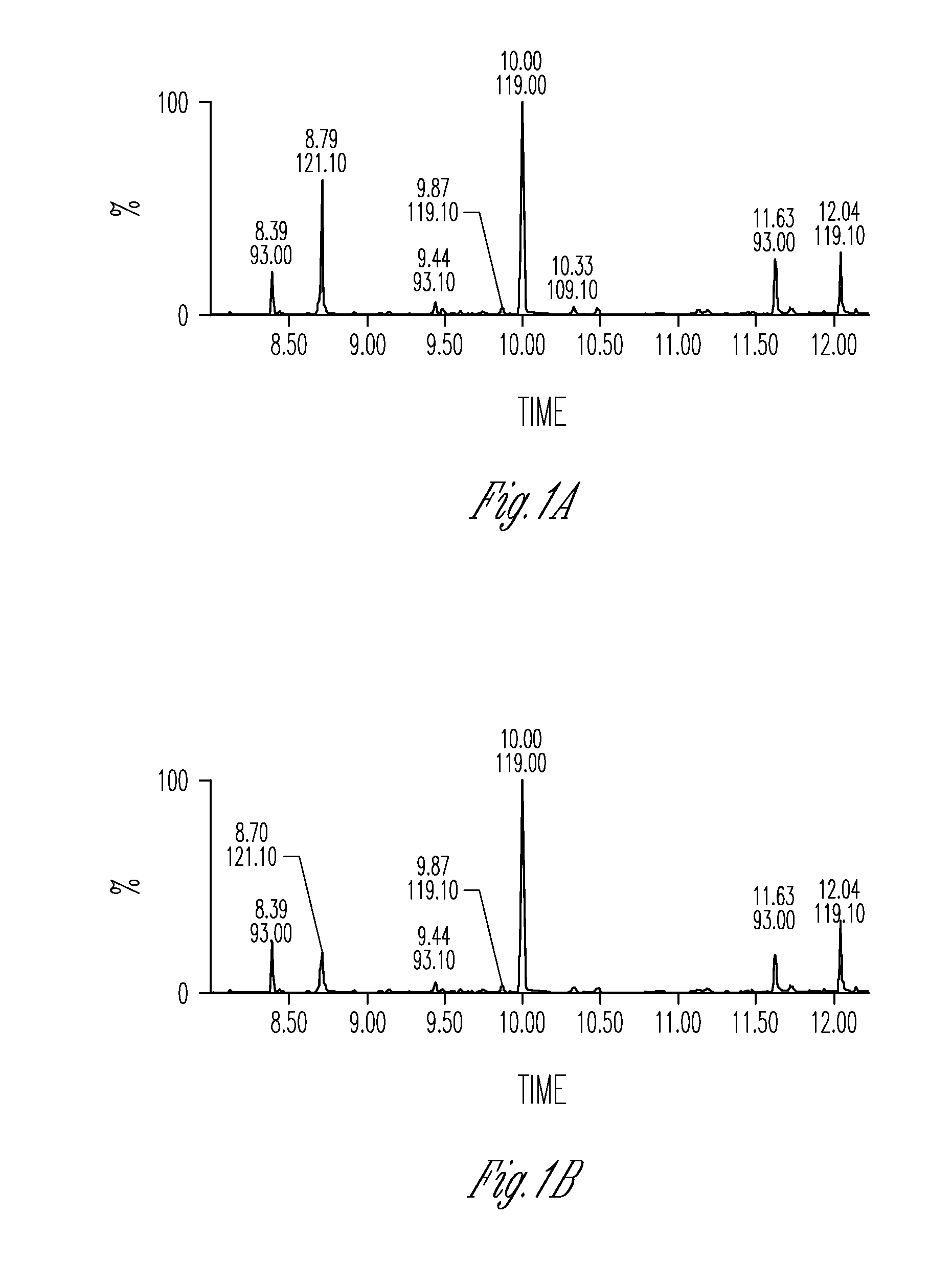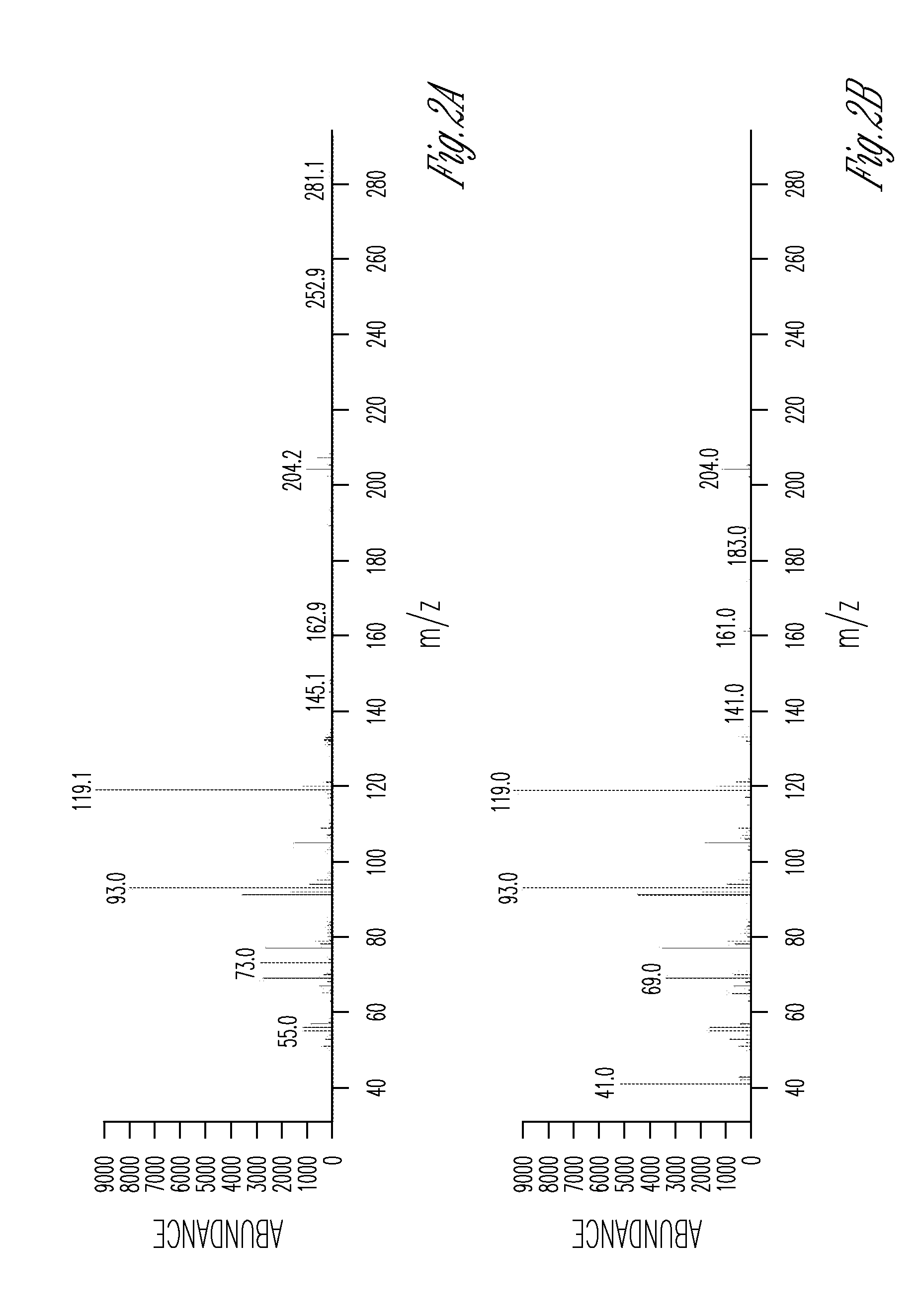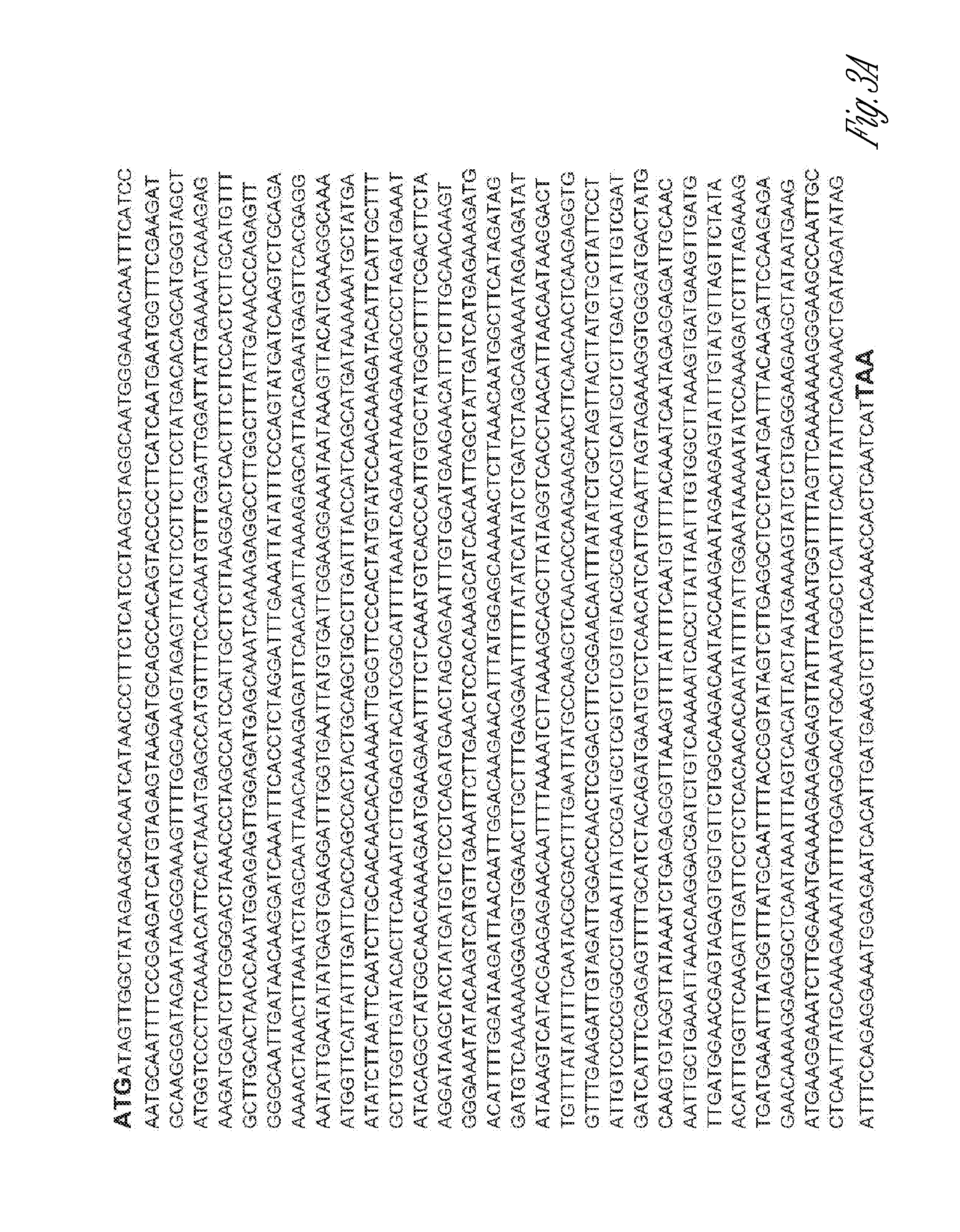Enzymes that synthesize zingiberene
a technology of enzymosynthesis and zingiberene, which is applied in the field of identification and isolation of new solanum habrochaites, and achieves the effect of efficient manufacturing
- Summary
- Abstract
- Description
- Claims
- Application Information
AI Technical Summary
Benefits of technology
Problems solved by technology
Method used
Image
Examples
example 1
Solanum habrochaites Trichomes Synthesize Zingiberene
[0163]This Example describes analysis of the volatile zingiberenes synthesized by various accessions of the wild tomato species Solanum habrochaites. The trichomes of the wild tomato species S. habrochaites predominantly synthesize sesquiterpenes, rather than monoterpenes that are characteristic of the cultivated tomato S. lycopersicum. Approximately 80 accessions of S. habrochaites were evaluated to ascertain what types of volatile terpenes are synthesized in the trichomes of these plants. One accession of S. habrochaites was identified that synthesizes significant quantities of zingiberene: LA2167.
Plant Material and Growth Conditions
[0164]Seeds from 80 accessions of Solanum habrochaites, together with a single accession of Solanum lycopersicum cv. M82 (LA3475) were obtained from the C.M. Rick Tomato Genetics Resource Center (see website at tgrc.ucdavis.edu / ). Plants were grown in Jiffy-7 Peat Pellets (Hummert International, Eart...
example 2
Isolation of Solanum habrochaites Zingiberene-Synthesizing Genes
[0167]This Example describes the isolation of cDNAs from Solanum habrochaites that encode enzymes that synthesize zingiberene.
Trichome Isolation and Gene Cloning
[0168]Greenhouse-grown plants were used for RNA collection. Stems and petioles from 2-3 fully grown plants from the same accession were pooled. Total trichomes were collected by fast-freezing the tissue and scraping the frozen trichomes in liquid nitrogen. Trichomes were ground before RNA isolation with the RNeasy kit (QIAGEN Inc. Valencia, Calif.). RNA quantity and quality were assessed with a ND-1000 Spectrophotometer. Complementary DNA was prepared with the Transcriptor First Strand cDNA Synthesis Kit (Roche Applied Science, Indianapolis, Ind.) using oligo (dT) as a primer. For cloning of PHS 1 orthologs from S. habrochaites, the same primers used for amplification of the full length cDNA in S. lycopersicum were used (see, Schilmiller et al., Proc Natl Acad S...
example 3
Isolation of Other Solanum habrochaites Zingiberene-Synthase Genes
[0180]This Example describes the isolation of additional cDNAs from Solanum habrochaites that encode zingiberene synthase enzymes.
[0181]Procedures like those described in the foregoing Examples were used for isolation of zingiberene synthase cDNAs from Solanum habrochaites accessions LA1731, LA2196, LA2106 and LA1352.
[0182]The Solanum habrochaites accession LA1731 zingiberene synthase has the following amino acid sequence (SEQ ID NO:12).
1 MIVGYRSTII TLSHPKLGNG KTISSNAIFR RSCRVRCSHS 41 TPSSMNGFED ARDRIRESFG KVELSPSSYD TAWVAMVPSK 81 HSLNEPCFPQ CLDWIIENQR EDGSWGLNPS HPLLLKDSLS121 STLACLLALT KWRVGDEQIK RGLGFIETQS WAIDNKDQIS161 PLGFEIIFPS MIKSAEKLNL NLAINKRDST IKRALQNEFT201 RNIEYMSEGF GELCDWKEIM KLHQRQNGSL FDSPATTAAA241 LIYHQHDKKC YEYLNSILQQ HKNWVPTMYP TKIHSLLCLV281 DTLQNLGVHR HFKSEIKKAL DEIYRLWQQK NEEIFSNVTH321 CAMVFRLLRI SYYDVSSDEL AEFVDEEHFF ATSGKYTSHV361 EILELHKASQ LAIDHEKDDI LDKINNWTRT FMEQKLLNNG401 FIDRMSKKEV ELALR...
PUM
| Property | Measurement | Unit |
|---|---|---|
| temperature | aaaaa | aaaaa |
| temperature | aaaaa | aaaaa |
| pH | aaaaa | aaaaa |
Abstract
Description
Claims
Application Information
 Login to View More
Login to View More - R&D
- Intellectual Property
- Life Sciences
- Materials
- Tech Scout
- Unparalleled Data Quality
- Higher Quality Content
- 60% Fewer Hallucinations
Browse by: Latest US Patents, China's latest patents, Technical Efficacy Thesaurus, Application Domain, Technology Topic, Popular Technical Reports.
© 2025 PatSnap. All rights reserved.Legal|Privacy policy|Modern Slavery Act Transparency Statement|Sitemap|About US| Contact US: help@patsnap.com



